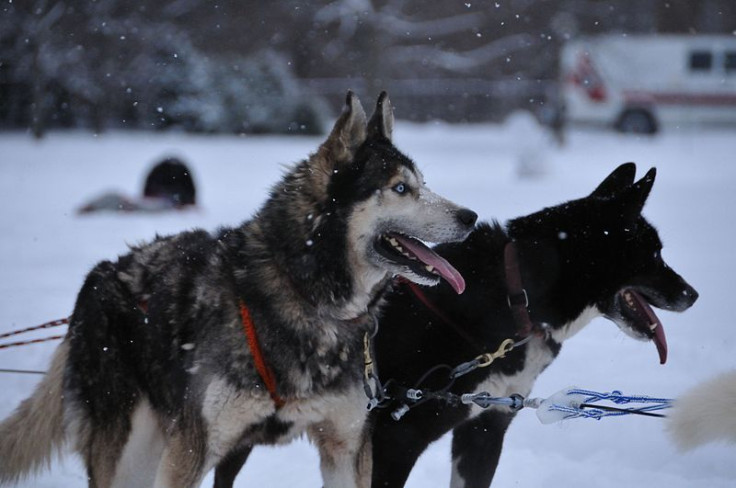World’s Oldest Cancer Originated In 11,000-Year-Old Dog, Ancient Canine Genome ‘Is Still Alive Today’

The world’s oldest identified cancer developed 11,000 years ago in a single Alaskan malamute or husky-type canine, a new study suggests.
The cancer, called canine transmissible venereal tumor, or CTVT, continues living in today’s modern dog population. It is the third known contagious cancer in the world – passed from one dog to another when they have sex, or lick another infected dog, NBC News reports.
According to a new study published in the journal Science, the cancer’s genome carries about 2 million mutations. Scientists sequenced one particular mutation from cancer cells taken from two infected dogs -- an Australian Aboriginal camp dog and an American cocker spaniel from Brazil. The findings found that the cancer originated 11,368 years ago in an ancient breed of dog with short, straight coat that was either grey, brown or black. Its gender could not be determined, but it was most likely inbred.
"The genome of this remarkable long-lived cancer has demonstrated that, given the right conditions, cancers can continue to survive for more than 10,000 years despite the accumulation of millions of mutations," Dr. Elizabeth Murchison, a genetics researcher at the Wellcome Trust Sanger Institute and the University of Cambridge in England, said in a statement. "We do not know why this particular individual gave rise to a transmissible cancer. But it is fascinating to look back in time and reconstruct the identity of this ancient dog whose genome is still alive today in the cells of the cancer that it spawned."
The fact that the cancer came from an inbred dog may shed light on how the disease has managed to survive. Inbreeding allowed odd genetic mutations to form and may have "facilitated the cancer's escape from its hosts' immune systems," the study’s authors wrote. "'Super cancer' is a good designation," Murchison said.
CTVT is an extremely rare cancer that began to spread around the world in the last 500 years. The latest findings may help scientists gain a better understanding of contagious cancers.
"The genome of the transmissible dog cancer will help us to understand the processes that allow cancers to become transmissible," Professor Sir Mike Stratton, senior author and director of the Sanger Institute, said. "Although transmissible cancers are very rare, we should be prepared in case such a disease emerged in humans or other animals. Furthermore, studying the evolution of this ancient cancer can help us to understand factors driving cancer evolution more generally."
© Copyright IBTimes 2024. All rights reserved.






















